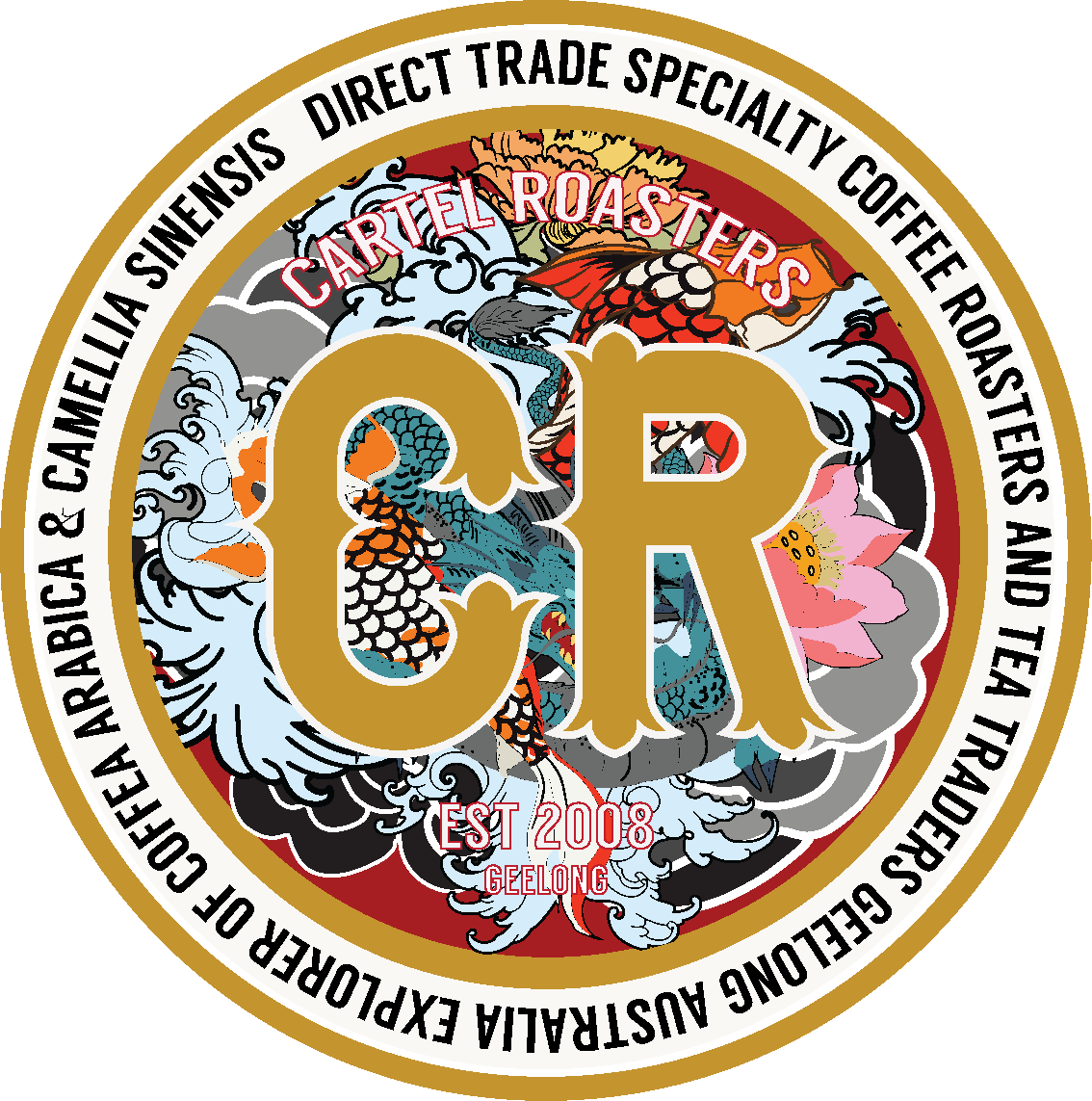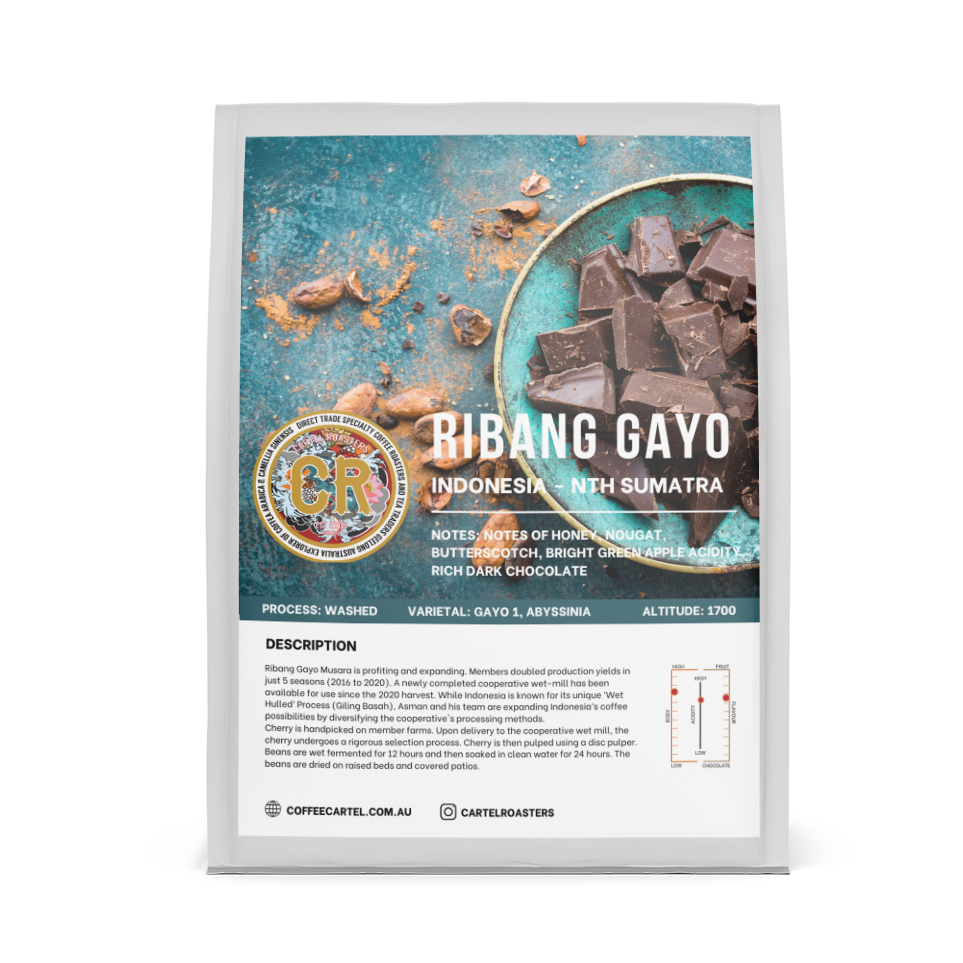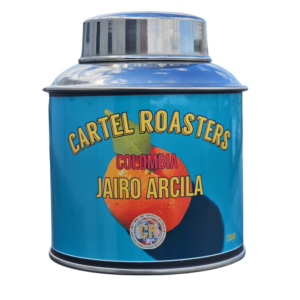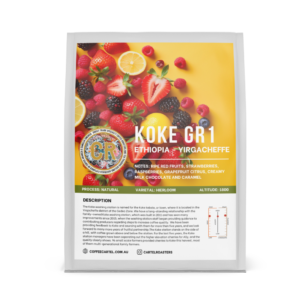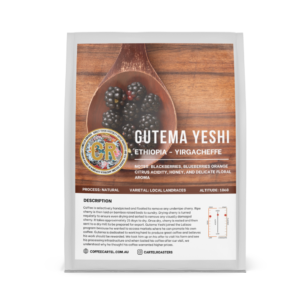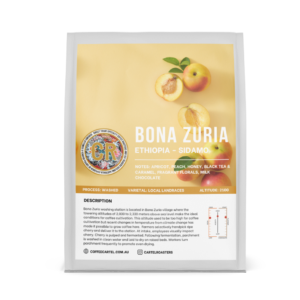About this coffee
- Altitude: 1700 MASL
- Farmer: RIBANG GAYO COOP
- COUNTRY: INDONESIA
NOTES: NOTES OF HONEY, NOUGAT, BUTTERSCOTCH, BRIGHT GREEN APPLE ACIDITY, RICH DARK CHOCOLATE
Asman Arianto is originally from Palembang, South Sumatra but has been living and working in Aceh Tengah since 1998. Most of the farmers in Aceh Tengah are migrants. Many of them were evacuated from Sinabung Berastagi in North Sumatra after the long-dormant volcano became continuously active again in 2013.
Asman was interested in coffee production. So, when he arrived in Aceh, he entered the coffee industry and began collecting and processing wet-hulled coffee. He soon switched to collecting cherry and processing as Fully washed, Honey or Natural.
He decided he wanted to build a cooperative to unite coffee farmers. In 2018, Asman formed the Ribang Gayo Musara Cooperative. His goal is to offer competitive prices that can help farmers reinvest in their farms and their families. The cooperative currently has over 350 members who deliver cherry to their processing facility in Pantan Musara.
The benefits for cooperative members are threefold. First, they get higher prices for their cherry when they sell to the cooperative. Second, as cooperative members, they receive end-of-season ‘second payment’ premiums that share a portion of profits earned for higher-quality lots. In 2019, that premium was 500 Rupiah per kilogram. Finally, the cooperative provides training and outreach for farmers in everything from cultivation to processing.
Ribang Gayo Musara is profiting and expanding. Members doubled production yields in just 5 seasons (2016 to 2020). A newly completed cooperative wet-mill has been available for use since the 2020 harvest. While Indonesia is known for its unique ‘Wet Hulled’ Process (Giling Basah), Asman and his team are expanding Indonesia’s coffee possibilities by diversifying the cooperative’s processing methods.
Cherry is handpicked on member farms. Upon delivery to the cooperative wet mill, the cherry undergoes a rigorous selection process. Cherry is then pulped using a disc pulper. Beans are wet fermented for 12 hours and then soaked in clean water for 24 hours. The beans are dried on raised beds and covered patios.
